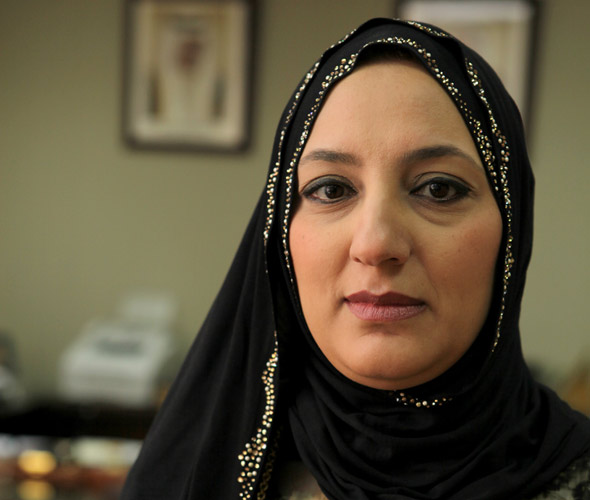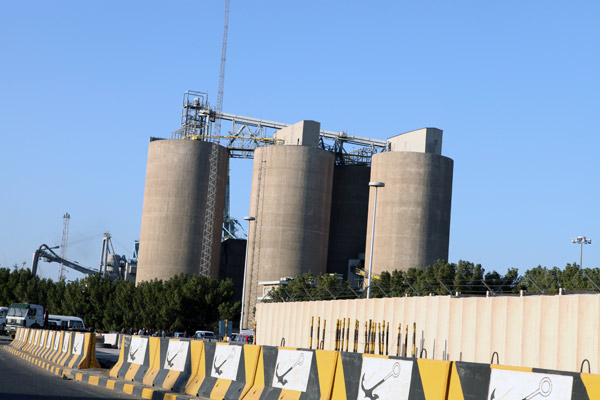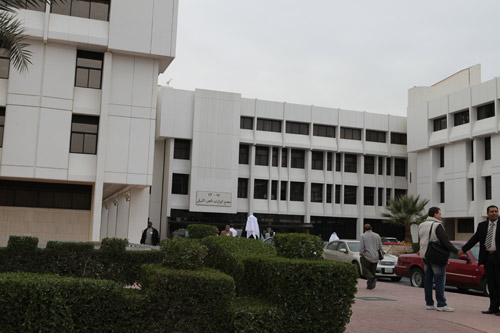Kuwait Industrial Policy 2012: New Laws, Diversification & Investments
Interview with Dr. Amani Khalid Bouresli, Former Minister of Commerce and Industry. Kuwait is totally dependent on oil revenue. One of the major objectives of the development plan is to diversify the economy and with the Kuwait industrial authority, the new standards are set in a way to encourage more new industries, not only chemicals.

The private sector argue that the government does not give land, the procedures are too long and harsh, the availability of gas is a problem, etc. How would you advise small and medium enterprises from Europe and the US who are interested in doing business in Kuwait? What should they do? Should they take this negativity into consideration? Is it justified?
Overall, I do not expect 2012-2013 to be much different from 2011. The price will remain around 100-110, more or less.
There is no quick answer to this question. I started at this ministry six or seven months ago and there are many challenges. The major ones that you mentioned: the process to issue licenses is very lengthy, to have land allocated for industry is not an easy government process, etc. This may be somewhat related to the scarcity of land in the country; it’s a small country. However, I am trying to resolve many of these problems.
The first thing I did was to look at and review the procedure that we follow to allocate industrial plots or to issue licenses. To review all of this and to find ways to change the procedure needs time. The six months I have been at the ministry is not enough to change everything, however, it is progressing. Just a week ago, we approved the standards to allocate industrial plots; they’re very transparent and straightforward. I think it will be easier after that to allocate industrial plots.
Secondly, to have the full industrial plot infrastructure ready takes a long time, as you have to obtain approval from government entities. The whole government is currently reviewing the whole process for all licensing approval, and even for typical daily procedures. Change is not easy, it usually needs time and we are working  on change in these things.
on change in these things.
If we look at the small and medium enterprises, there are some efforts to motivate and encourage this very strategic sector. The government is aiming to have all of these efforts gathered under one umbrella and this is, again, something that I am addressing myself.
We have drafted a law for SMEs and under this law we will have an authority, which will provide technical support and finance and look at ways to facilitate the procedure for foreign as well as local investors. Kuwait passed a law in the year 2000 to encourage foreign investors. However, this law was not efficient and this is why we now have a completely new version of the law that will be passed soon – in less than one year at the parliament, as soon as we finish the elections. As soon as this law is effective, I’m sure the procedure for foreign investors will be easier.
At the moment, though, the foreign investment office is facilitating many things for foreign investors. Unfortunately, many foreign investors don’t know about this. The foreign investment office, which is under the jurisdiction of the ministry, is trying to make things easier and clearer for foreign investors, in terms of the procedure, and facilities available to them as soon as they enter the country. They don’t need to come to the ministry, if they want to invest in Kuwait or if they want to find out about investment opportunities.
The development plan was adopted in 2010. Many see it as the providential answer to the problems Kuwait has experienced in the past. Since then, very little has been done, there have been obstacles. So what is the future of this plan? Can we see it as sending a bad message to the outside world that things are not going ahead?
From 1986 until recently, the government didn’t have a plan. So, I think just outlining a complete development plan for the next 25 years is a major step. Now, we are in January 2012, so it has been in place for one year – this is the second year. The start is always the hardest part. Once things start to move and develop it will be much easier in the next steps. If you look at other countries’ experiences in adopting a development plan, it’s always assessed and reviewed and monitored. In Kuwait, the prime minister is following the plan on a weekly basis. We have a committee dedicated to facilitating and removing all the hurdles, such as amending laws, creating new laws, or reviewing some of the procedures in the government entities.
The process is very complex and the amount of allocated funds for the development plan is huge. The projects are scattered between many government entities, so we have one entity – the Ministry of Planning and Development – that follows the adoption of this full plan. I personally believe that the first two or three years are the hardest and once we change some of the laws, as well as the procedure, and move to e-government things will be easier.
The staff of the government and the public sector is not used to the follow-up process involving evaluating whether they are in line with the development plan, deadlines, etc.; it’s a new culture for the public sector staff. I’m optimistic about the future. I totally agree with concerns that the private sector have and I’m trying to set up some initiatives to motivate them. Again, we have a country with possibly the biggest public sector. To move towards privatisation and enable the private sector to lead the development of the country needs time. As you mentioned before, the political aspect is somehow pulling us down.
What is your outlook for industrial growth in Kuwait for 2012 and beyond? What should the evolution of the industry be in the future in the view of diversification? 
This is another challenge in terms of the economy. Kuwait is totally dependent on oil revenue. One of the major objectives of the development plan is to diversify the economy and with the Kuwait industrial authority, the new standards are set in a way to encourage more new industries, not only chemicals. We need to diversify the economy; we position ourselves in a way to diversify the economy.
Even the the standards – we need to export more and diversify the industries that we have in Kuwait. Kuwait is very low in terms of exports other than oil, so this is a major objective – to have Kuwait concentrating on some sectors like industry, SMEs, and even Kuwait as a financial hub. As you can see, the city is full of towers. The country is trying to position itself as a commercial and trade hub for the GCC region.
Finally, for your export markets, what is your strategy? Are you going to focus more on traditional markets or are you going to promote cooperation with Asian markets?
Kuwait is a member of the WTO and next week we will conduct a review process with the WTO. The country is trying to have direct relations with most countries, including Europe as one unit and the United States.
The plan is to have more multi-lateral trade with most of the countries and this depends on each country’s competitive advantage and location. This is one of the main projects in the development plan; to have more exports with most of the region, primarily the GCC, but also the MENA region and other countries.